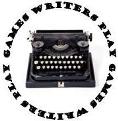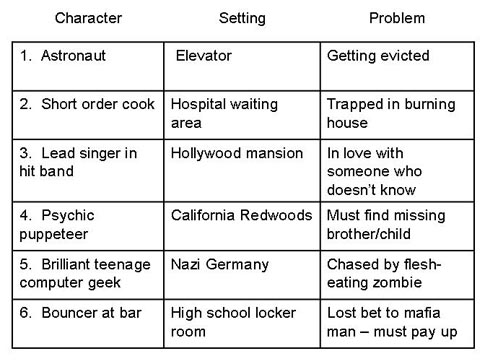 “You can’t wait for inspiration. You have to go after it with a club.” — Jack London
“You can’t wait for inspiration. You have to go after it with a club.” — Jack London
If you’re sitting around waiting for the perfect idea to pop into your head before you put a word on the page, you’re going to be waiting a long time. Usually you never know when an idea is great anyway — it just happens along the way. And even when you’re finished, you may think the end product is terrible, but your own opinion is often distorted because you’re comparing your work to some impossible ideal and not really seeing the true merits of what’s on the page.
Anyway, ideas are easy. It’s what you do with those ideas that makes great writing.
Still, there are times when the ideas just won’t flow. Here’s a neat game that can give you a jolt: Use a dice and a grid with story possibilities to create the bones of a new story.
This is geared toward fiction, but you could certainly adapt it to nonfiction. For fiction, the bones of every story can generally be boiled down to a character in a setting with a problem.
A hobbit named Frodo [C] journeys across the ancient land of Middle Earth [S] to destroy the One Ring before the evil Sauron finds him [P].
In fact, you can boil almost every scene down to those essentials too.
Indiana Jones [C] races through a deadly cave [S] to avoid from getting crushed by a giant boulder [P].
To play this game, create a 3 x 6 grid. The three columns along the top should be labeled “Character,” “Setting,” and “Problem.” Number the six rows on the left. Now it’s time to do some brainstorming. You need to come up with six characters, six settings, and six problems. Be creative! Here’s an example:
The next step is to roll the dice three times. The first number chooses the character. The second number chooses the setting. The third chooses the problem. Once you’ve got those, start your story and see where it goes. Here’s a tip: Don’t be too constrained. If the story takes you in a different direction, go with it.
So let’s say I rolled a “3,” a “1” and a “6.” That would give me a lead singer in a hit band who’s in an elevator and must pay off a bet to a mafia man. My mind is already rolling . . .
-+-

